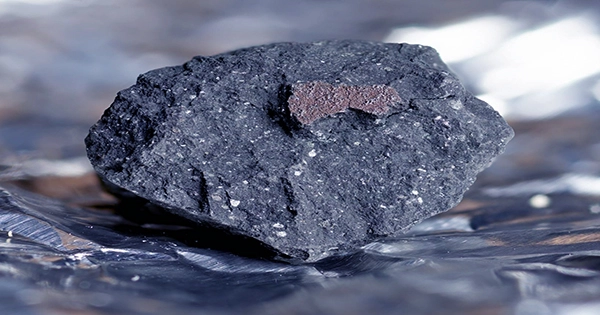Inside a sizable meteorite near Somalia, two minerals that have never before been observed on Earth were found. They might include crucial hints on the formation of asteroids.
One 2.5-ounce (70 gram) slice of the 16.5 tons (15 metric tons) El Ali meteorite, which was discovered in 2020, contained the two brand-new minerals. In honor of Lindy Elkins-Tanton, managing director of the Arizona State University Interplanetary Initiative and principal investigator of NASA’s upcoming Psyche mission, who will send a probe to investigate the mineral-rich Psyche asteroid for clues about how our solar system’s planets formed, scientists named the minerals elaliite after the meteor and elkinstantonite after her.
“Whenever you find a new mineral, it means that the actual geological conditions, the chemistry of the rock, was different than what’s been found before,” Chris Herd(opens in new tab), a professor in the Department of Earth and Atmospheric Sciences at the University of Alberta, said in a statement(opens in new tab). “That’s what makes this exciting: In this particular meteorite you have two officially described minerals that are new to science.”
El Ali was identified by the researchers as an Iron IAB complex meteorite, a type of meteorite composed of meteoric iron and silicate flecks. The scientists’ attention was drawn to the new minerals’ specifics when examining the meteorite slice. They quickly recognized the minerals as newly recorded in nature by contrasting them with versions of them that had previously been synthesized in a lab.
The researchers plan to investigate the meteorites further in order to understand the conditions under which their parent asteroid formed. “That’s my expertise — how you tease out the geologic processes and the geologic history of the asteroid this rock was once part of,” Herd said. “I never thought I’d be involved in describing brand new minerals just by virtue of working on a meteorite.”
The group is also investigating the use of the minerals in material science. Future scientific discoveries from the El Ali meteorite, however, could be in danger. Now that the meteorite has been relocated to China in search of a potential buyer, access by researchers to the space rock for study may be restricted.















